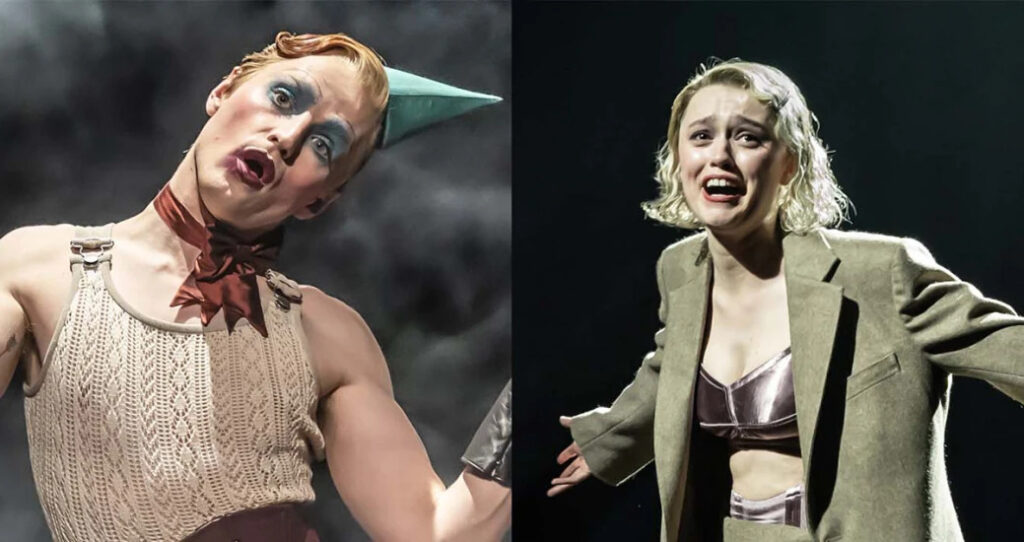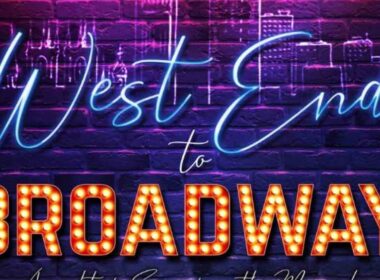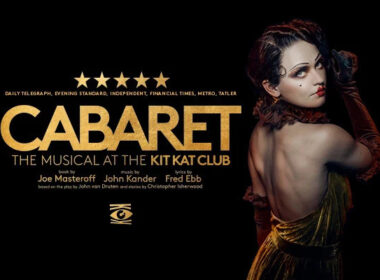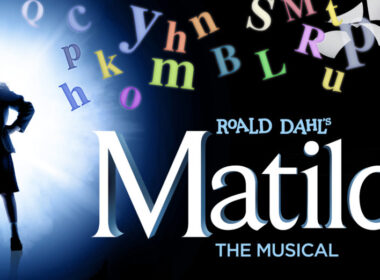Willkommen to the Kit Kat Club, please, walk down the hall and don’t forget your complementary schnapps. It’s 1930s Berlin; nothing to worry about…
Cabaret has become a musical theatre staple that subconsciously demands something new with each adaptation. I’m happy to say that the Playhouse Theatre’s version passes this exam with flying colours.

The show begins the moment you step into the theatre, the entire venue has been transformed, and you immediately immerse yourself into the world of Cabaret. The Playhouse Theatre, renamed as the Kit Kat Club, begins with a long walk down a hallway like you’re in a carnival funhouse, where an extra might appear to put on a show at any moment. I wasn’t kidding about the complementary schnapps; you get one for free on your way in. Each level of the in-the-round theatre is practically its own interior art show. You might believe the staff placing a sticker on your phone camera is to prevent leaks of the performance only, but it can also apply to the venue itself. You’ll find the Kit Kat Club’s logo, eerily reminiscent of an eye, everywhere, even on the “stage” as a light fixture.
It’s two hours and 45 minutes of debauchery fun, gradually turning to horror as the rise of fascism in Germany looms over the characters and plot. In a sense, it’s like a twisted version of a Magic Tree House novel where you’re transported right before a horrible disaster, and all you can do is watch.
This adaptation isn’t afraid to deviate from fundamental elements found in other versions of the show and often to its own benefit: The Emcee (John McCrea) and Sally Bowles (Aimee Lou Wood) being prime examples. In many other depictions, the Emcee is precisely that, an Emcee, occasionally used at the end to reveal them as an inevitable victim of Nazi horrors wearing a prison suit with a pink triangle (a Nazi-era symbol for LGBTQ people). This show diverges from that; instead, this Emcee mirrors the state of Germany as their costumes and dementor steadily become increasingly soulless and militant. Similarly, this version of Sally Bowles is a refreshing departure from the many imitations of Liza Minnelli’s performance from the 1972 film, for which she won an Oscar. That depiction appeared to have become standard for the character. While still maintaining her signature Manic Pixie Dream Girl demeanuor, this Sally Bowles’ version of the signature Cabaret song is far more accurate at highlighting how she feels internally.
Special mention also goes to Richard Katz as Herr Schultz and Vivien Parry as Fräulein Schneider. Their brief relationship oozes with chemistry and wholesomeness that you almost forget the pending threat of the Nazi regime for a moment. Unfortunately, the same cannot be said for Nathan Ives-Mobia’s Clifford Brandshaw, sporting a so-called “American accent” that comes off as downright cartoonish, especially in the first act. Luckily the masterful costuming by Tom Scutt allows every character to be a visual delight to audiences, performances aside.
This seven Olivier award-winning version of Cabaret is not to be missed. It’s a unique depiction of the classic stage musical that isn’t shy to do its own thing. It follows the mantra of the Kit Kat Club to a T: leaving its troubles outside.
4/5




